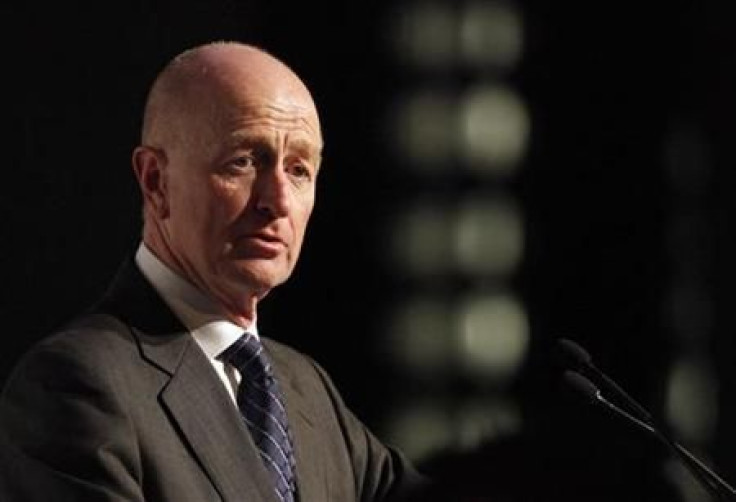Australia's Reserve Bank Keeps Interest Rates Unchanged For Now, Could Consider Future Cuts If Necessary

The Reserve Bank of Australia, or RBA, decided on Tuesday to keep the overnight cash rate unchanged at a record low 2.75 percent for the second consecutive month, in line with expectations, but did not rule out further cuts, even as a weak Australian dollar and a fall in borrowing rates eased pressure off the central bank for the present.
The bank, in a statement, said that the country's economy is being aided by rate cuts made in the past 18 months, and noted that the Australian dollar could depreciate further in coming months, balancing growth in the mining-driven economy.
"The board judged that the easier financial conditions now in place will contribute to a strengthening of growth over time, consistent with achieving the inflation target," RBA Governor Glenn Stevens, said, adding that the inflation outlook could provide scope for further rate cuts in the future if required.
"It decided that the stance of monetary policy remained appropriate for the time being," he said.
According to Stevens, recent economic data confirmed that the country is growing a “bit below trend” over the recent period and that it could continue to do so in the near future as the country adjusts to lower levels of investment in the mining industry.
Australia’s inflation rate, which is currently ranging between 2 to 3 percent is well within the comfort levels specified by the RBA, while borrowing rates have touched record lows. The Australian dollar has slumped more than 10 percent against most major currencies since May.
Australia’s ASX 200 benchmark index, which fell about 2 per cent on Monday on fears of a slowdown in China, was trading up 2.03 percent, after the RBA's decision.
© Copyright IBTimes 2024. All rights reserved.












